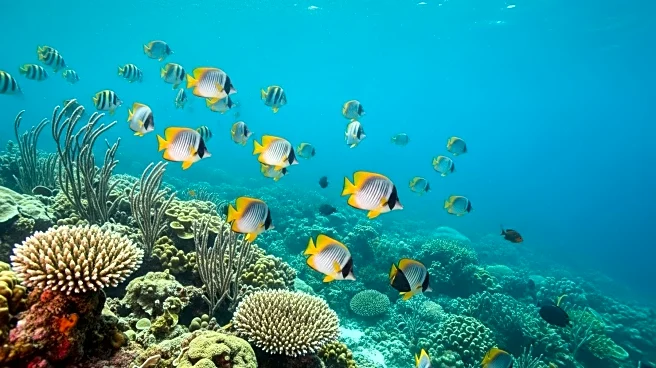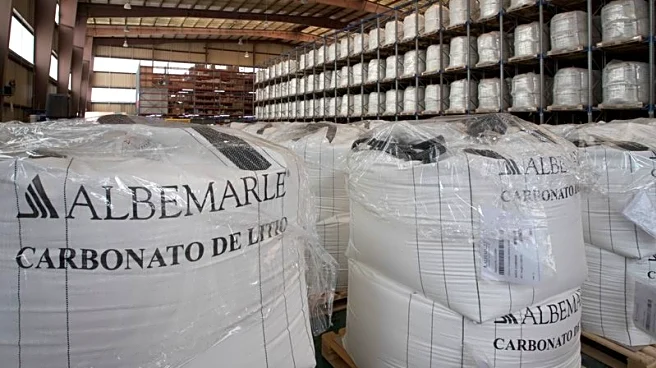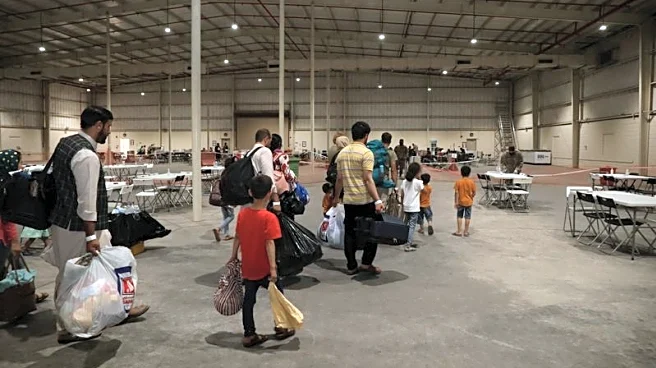What's Happening?
The World Trade Organization (WTO) has officially implemented the Agreement on Fisheries Subsidies, a landmark deal aimed at reducing overfishing by requiring countries to cut subsidies to fishing fleets. This agreement, which took effect on September 15, 2025, is the WTO's first major environmental initiative and a comprehensive multilateral agreement focused on ocean sustainability. The agreement was initially adopted in 2022 and has now been ratified by 112 countries, including major fishing nations such as China, the United States, and the European Union. The deal's implementation follows the recent adoption by Brazil, Kenya, Tonga, and Vietnam, which helped meet the requirement of two-thirds of WTO's 166 members for formal acceptance. The agreement targets subsidies that contribute to illegal fishing and overfished stocks, with a second phase addressing subsidies that lead to overcapacity in the fishing industry still pending.
Why It's Important?
The implementation of the WTO Agreement on Fisheries Subsidies is a significant step towards addressing the global issue of overfishing, which threatens marine biodiversity and the livelihoods of millions who depend on the ocean. By curbing subsidies that encourage excessive fishing, the agreement aims to protect fish stocks and promote sustainable fishing practices. This move is crucial as overfishing has led to the depletion of approximately 38% of global fish stocks, posing a dire threat to marine ecosystems. The agreement also establishes a 'fish fund' to assist developing countries in implementing the new regulations, highlighting the global commitment to sustainable ocean management. The success of this agreement could set a precedent for future international environmental agreements, emphasizing the importance of multilateral cooperation in tackling global challenges.
What's Next?
While the first phase of the agreement has been implemented, the second phase, which focuses on subsidies that create overcapacity in the fishing industry, remains to be finalized. This phase is critical as it addresses the economic incentives that make large-scale fishing more appealing and affordable, further threatening global fish stocks. Experts hope that the momentum from the first phase will drive progress on the second phase. Additionally, the agreement's success will depend on the effective enforcement of its provisions and the willingness of countries to adhere to the new regulations. Stakeholders, including environmental advocacy groups and the fishing industry, will likely continue to monitor and influence the implementation process to ensure the agreement achieves its intended goals.
Beyond the Headlines
The WTO's agreement highlights the complex interplay between economic interests and environmental sustainability. While the deal marks a significant step towards ocean conservation, it also underscores the challenges of balancing economic growth with ecological preservation. The agreement's focus on reducing harmful subsidies reflects a growing recognition of the need to reform economic policies that contribute to environmental degradation. This development may encourage other sectors to reevaluate their practices and adopt more sustainable approaches, potentially leading to broader shifts in global economic and environmental policies.











